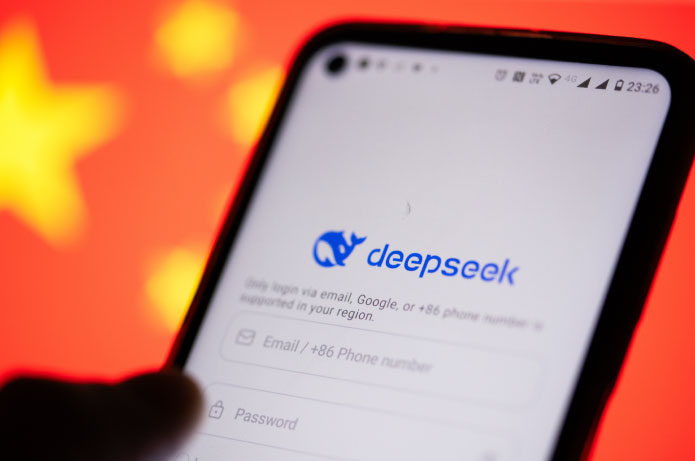Driven by technological advances and a growing market acceptance, artificial intelligence has consolidated as a strategic element for companies in Brazil. According to a survey by IPSOS and Google, 54% of Brazilians used generative AI in 2024, surpassing the global average of 48%. However, this accelerated growth also brings challenges, especially with regard to the security and governance of corporate data.
The arrival of DeepSeek, a Chinese AI chatbot with open source, intensified this debate. Launched discreetly in Brazil in January 2025, the platform quickly gained popularity and became a promising competitor for OpenAI's ChatGPT and Google's Gemini.
The alleged efficiency and performance of the chinese model suggest that perhaps the AI market may be moving along a more economical path, leading to reflection on the feasibility of such massive investments in western companies, whose business models now seem to be overcome by more affordable and equally efficient alternatives.
Deepseek raises critical questions, however, in addition to different ethical sensitivities.The open nature of the platform raises questions about security, so companies using open source AI need to be aware of the preservation of their information.
Recently, a Deepseek flaw exposed user prompts and API keys, raising fears about privacy in the system.In addition, several countries, such as Australia, South Korea, Taiwan, the Netherlands and Italy, have restricted their use due to the risk of sharing information with Chinese servers.
AI in the corporate world: how to balance innovation and security
While some nations are more cautious, Brazil is fast moving towards artificial intelligence. The IPSOS and Google study shows that 65% of Brazilians see the technology as promising, and 60% believe it will create more jobs. Confidence in AI's labor market transformation has grown from 62% to 68% in a year, while fears of job losses have dropped from 20% to 15%.
For companies, this reality represents both an opportunity and a challenge. The growth of AI use requires a balance between innovation and security, with guidelines that include a careful risk assessment, implementation of transparency and governance, team building and partnerships with trusted suppliers. Adopting technologies such as DeepSeek without a solid strategy can expose business to regulatory risks, information leakage and operational instabilities.
In addition, lack of compliance with local data protection standards and vulnerability to cyberattacks can compromise the integrity of the company, damaging its reputation and customer trust. Therefore, it is essential that organizations conduct a careful evaluation before implementing these technologies, ensuring that their choices are aligned with regulations and the protection of sensitive data, minimizing potential long-term losses.
One strategy that helps companies keep their cybersecurity always up to date and efficient, for example, is Security Lifecycle Management (SLM). It ensures that all steps of information protection - from risk identification to incident response - are constantly monitored and improved.
In practice, this means that security is not treated as something static, but rather as a continuous process. New threats arise all the time, and therefore it is essential to review, adjust and strengthen protection measures regularly. SLM allows organizations to anticipate potential problems and keep their data and systems always protected. That is, the adoption of AI must be accompanied by clear compliance and security policies, ensuring that its use is aligned with corporate objectives and the protection of sensitive data.
Generative artificial intelligence is already part of the Brazilian business reality and will continue to expand in the coming years.The case of DeepSeek highlights the need for a critical look at security and governance, but also reinforces the transformative potential of AI in the corporate world. Companies that know how to integrate this technology responsibly and strategically will have a competitive advantage, driving innovation and growth without compromising data protection and customer trust.


